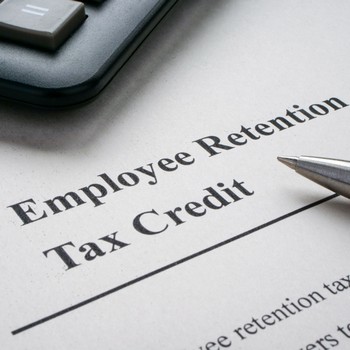
The Employee Retention Credit (ERC) has been a vital lifeline for many employers struggling through the economic challenges brought on by the COVID-19 pandemic. However, a recent article highlights an important and often misunderstood aspect of the ERC program: the IRS may challenge ERC claims even after employers have received refunds. This post delves into the key points raised in the article and offers insights into what ERC recipients should be aware of.
The Illusion of Approval
One common misconception among ERC recipients is that once they have received their refunds, their ERC claims have been approved. In reality, the IRS retains the authority to audit and challenge ERC claims until the applicable statutes of limitations have expired. This means that the matter is not closed until that time, leaving recipients potentially exposed to IRS challenges.
The IRS's Growing Vigilance
With the rapidly approaching April 15, 2024 deadline for 2020 ERC claims, the IRS is intensifying its efforts to review and scrutinize these claims. The agency has made it clear that it will be looking more closely at recently filed ERC claims, suspecting potential fraud or inaccuracies. After this deadline passes, the IRS will have limited means to assess additional taxes or recoup erroneous refunds, so it is using its remaining time wisely.
Statute of Limitations Variations
Employers must understand that the statute of limitations varies depending on the ERC claim's quarter. For ERC claims related to the third quarter of 2021, the IRS has an extended five-year statute of limitations for assessments, giving them until 2027 to assess additional taxes. Additionally, the U.S. Department of Treasury has proposed a five-year statute of limitations for tax assessments on all ERC quarters in the fiscal year 2024 budget.
Fraudulent Intent and Tax Preparer Liability
It's worth noting that the IRS is not bound by any statute of limitations when it comes to assessing taxes in cases involving fraudulent intent or willful attempts to evade taxes. Furthermore, a tax preparer's fraudulent acts may be imputed to the taxpayer, putting them at risk of an extended audit and potential liabilities.
Second Opinions and Eligibility
Given the complexity and potential risks involved in ERC claims, employers are wise to seek second opinions on their claims to ensure accuracy and eligibility. A fresh review may also uncover overlooked opportunities for eligibility, potentially increasing the amount of the credit.
Amended Returns and Administrative Remedies
Another important consideration is the IRS's discretion to reject or deny amended returns, especially if filed close to the statute's end date. This concern arises from the absence of an automatic extension of the assessment statute of limitations for employment tax returns. When the IRS rejects amended returns, taxpayers may need to pursue administrative remedies to compel the IRS to accept their submissions.
The Worst-Case Scenario
The worst-case scenario for ERC seekers involves the IRS indefinitely halting the processing of ERC claims. In such a situation, taxpayers would need to initiate lengthy and costly suits for refund in either the U.S. District Court or the Court of Federal Claims. This process can be both time-consuming and financially burdensome.
Conclusion: Timing and Expertise Matter
As the 2020 ERC claim deadline approaches, employers must understand that their claims are not immune to IRS scrutiny. Seeking professional assistance for a thorough examination of ERC claims is a prudent move, whether you're new to ERC or have already filed a claim. Moreover, keeping the 2024 and 2025 deadlines in mind and considering protective claims for refunds is essential to preserving your rights and mitigating potential financial risks.
In conclusion, ERC recipients should not assume that their refunds signify IRS approval. It's crucial to stay informed, seek expert guidance, and be vigilant about the various statutes of limitations and deadlines associated with ERC claims to safeguard their financial interests.
The Authors
Carl Faletta serves as a senior partner at the Florida CFO Group, bringing with him more than a quarter-century of extensive financial leadership expertise, enabling clients to achieve financial success and secure their future through expert financial guidance and strategic planning. Throughout his career, Carl has assumed various pivotal roles, including GM, COO, CFO, CEO, and consultant for a diverse array of startup, public, and private companies.
Don Noble, a distinguished Partner at Florida CFO Group and a technology expert, boasts an extensive background in financial leadership and advisory roles. Leveraging his wealth of experience, he collaborates with businesses to optimize their financial and technological strategies, fostering growth and resilience in the dynamic marketplace.
For immediate assistance with your ERC or any financial or accounting inquiries, don't hesitate to get in touch with Carl (carl.falletta@floridacfogroup.com) or Don (don.noble@floridacfogroup.com) directly, or connect with any of our dedicated partners. We're here to help you navigate your financial challenges and achieve success.